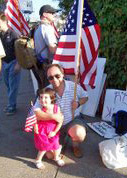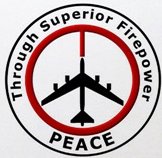My Grandpa’s story
The story of a Soviet Army Combat Medic.

On the left is my grandfather – master sergeant Moysey Bogomolny. This picture was taken on VE day – 5/8/1945 – in Berlin.
Well, it took me a while to get to this page. A lot has happened since I started. Finally, I am ready.
All this and many other stories of his life experiences my grandfather told me over many years, including fairly recently. He was telling stories and was full of life and humor pretty much until his last day. Grandpa’s feelings and thoughts at the time of the war are also described in his diary. Well, it wasn’t really a diary. When the war ended, he was in Germany with the rest of the troops. All of a sudden he found himself with nothing to do until he was released from service: there was no more wounded soldiers on the battlefield to take care of. And so he decided to put on paper his wartime experiences. He only got from the beginning to his first combat. But it still very interesting and valuable from the historical perspective. Please, take a look.
Grandpa was born in 1908, and when the war started for Russia, he was almost 33 years old. When he was 21 (the age of the draft at the time), he was not drafted into the army for active duty because of health reasons. Instead, he was trained as a combat medic. In 1941, however, he was considered a valuable qualified worker and, thus, was not to be drafted. Shortly after the war started his factory was to be evacuated from Odessa. He was supposed to go with the factory and was allowed to take his immediate family with him, my grandmother and my dad who was 3 at the time. However, grandma did not want to leave without the rest of her family. Nobody was taking the German threat seriously. Grandma’s father was not a supporter of Communism. In mid-20s he had a small business, while it was allowed, and he even spent some time in jail in the late 20s for this. He believed that all the stories about Nazis murdering Jews was just a Communist propaganda. He would later pay for this belief with his life.
So, grandpa did not leave with his factory because of his family and, thus, lost his draft deferment. Shortly Odessa was besieged by the German and Romanian forces, and grandpa was drafted. The situation at the time was so grave, that nobody cared about his military specialty. He was given a rifle and used as an infantryman. Before the end of August of 1941 he was in his first combat. His unit was ordered to counterattack the Axis forces. So, he was running forward with everybody else, shooting toward the enemy, and finally was wounded into the leg by a mortar shell fragment. This wound, relatively light, ended up being a blessing for the family. Grandpa was evacuated with the other wounded to Stalingrad, of all places, a far rear area at the time. Grandma simply decided to follow him. She managed to obtain a permission to follow her wounded husband, and the whole family, except grandma’s father, left. Two weeks later Odessa was occupied by the Germans and Romanians. Grandma’s father stayed behind and was killed.

This is my grandfather in 1940 – before the Soviet Union officially joined the war.
Grandpa was not a hero, nor was he in great physical shape. He adopted a bit fatalistic attitude. When he was called up, he convinced himself that he was not going to survive anyway and, thus, the only thing left for him to do was to do his job the best he could. After he recovered from his wound he was reassigned to a new fighting unit as a combat medic, according to his military training. He also received his prewar rank of Starshina, roughly equivalent to an American Master Sergeant. This was his rank till the end of the war. And so, he had two jobs all the way to the end: a combat medic and a company sergeant. He was armed with a Mosin carbine (unlike their American counterparts, the Soviet Army medics were armed: there were no non-combatants on both sides of the Eastern Front). His main job, of course, was not shooting. It was giving aid to wounded soldiers and pulling them out from under fire. And that he did. He did not think of any heroics when he was talking to me about things he did under fire. To him it was just a job he had to do. In one engagement he pulled out from under fire over 25 soldiers. He was awarded an Order of the Red Star for this. I am guessing, it is something similar to either Bronze Star or Silver Star in the US Army. That happened in 1944 in Poland. His other award for bravery was a medal “For Valor”. Unfortunately, I don’t know the circumstances that led to this one. Throughout the course of the war he was wounded twice, had 2 concussions from explosions and once suffered a frostbite. His frostbite resulted in 2 fingers on his left hand being shortened, but he was still considered fit for duty after that. The evidence of one of his wounds stayed with him till the end of his life: he had a shell fragment close to his knee.
Although it was not his main job, grandpa did shoot at the enemy. I was always asking whether he had hit anybody: as a kid I always wanted to know that my grandpa took some revenge for 6 million Jews and killed a Nazi soldier, and as an adult I also became simply curious. He always said that he did not know. It was hard for me to understand, even as an adult: after all, a Mosin carbine, also known as Mosin-Nagant, is a bolt action rifle. You actually have to aim it before shooting. But grandpa would never admit to actually hitting anyone. He once told me: “You know, in order to find out if you hit anybody, you actually have to raise your head and look, and such a curiosity might cost you”. So, I guess, he might have been satisfied when he shot back and the enemy stopped shooting at him for a minute, so he could give aid to his comrades. I also think there might be another reason for him never admitting that he actually hit anyone: he did not want to think that he might have killed another human being. But it was a war, and one of his bullets probably found its target. However, it probably was easier for him not to know about it. I am glad it was.
Yes, grandpa never thought of himself as a hero. But, in a way, he was: he had enough courage to do his job under the hardest of circumstances. Wars are not won by individual dare-devil heroes: majority of people are not like that. Wars are won by average guys like my grandfather, who just do their jobs.

This is the picture of my grandma and dad in early 1945. My grandma had this picture taken and then sent it to my grandpa to the Front, when, after 3 years of not knowing of each others fates, they finally reestablished contact.
When grandpa reached Stalingrad after his first wound, he sent a letter to his family back in Odessa. Grandmother actually received it, and that’s what prompted her to get moving. They got on a ship and left Odessa: this was the only way to get out at the time. That was quite an adventure in itself: a ship next to theirs in the convoy was sunk by the German bombers. After the grandma evacuated from Odessa with the rest of the family, they lost touch with the grandfather. In a way, it might have been better for the grandpa: he suspected that his family might have been killed and didn’t think much about surviving himself. Once he had to aid a soldier in a no-mans land and was stuck there until dark. When he got back, his company commander told him that he was already presumed dead, and his name was submitted for that dreaded telegram to his family. But he just smiled in response: he knew that nobody knew where his family was. They finally reestablished contact by pure accident when my grandma returned to Odessa in late 1944, but that’s a separate story.
In World War 2 grandpa participated in the struggle against a brutal and murderous regime and for freedom for everybody. He really believed it, and his diary confirms that. But it so happened that the country he lived in at the time was under a brutal dictatorship itself. He might have not realized it at the time, but he did come to that conclusion later. He was 81 years old when he came to America. He was at last in the country which approached the ideals he fought for during the war. When he was 90, he became an American Citizen. He was very proud of it. A little over a year later he died. When I started this project, grandpa was alive and well (as well as a man his age could be). He knew about it and was telling me his stories and helping to transcribe his diary (his handwriting was a little hard to read). When he started getting worse, I stopped, hoping against any logic that the knowledge of an unfinished project would keep him going. That didn’t work, unfortunately. Now the only thing left for me is to tell my grandfather’s story. Grandpa lived a good and long life and, when it was necessary, was able to defend his family and the dignity of his people. I am very proud of him.

















Hi Eric –
I’m Deana. I linked to your site from Bookworm’s blog.
Loved the story of your grandpa! So fascinating! What a life.
I just lost my 90 year old grandpa last year – a captain in WWII. There is something just so amazing about that generation. Thank God you got to know your grandpa and talk to him. I know it will comfort you for the rest of your life.
Take care! And thanks for writing about your grandpa’s life.
Deana
Deana,
Thank you very much for visiting my blog and commenting.
Sorry to hear about your grandfather’s passing. That generation is slowly fading away. We need to preserve their memory, especially in light of the current conflict.
Eric.
[…] My Grandpa’s story […]
Pingback by Engineers - into politics! « Conservative Liberal | April 13, 2008 |
Another great post. Very interesting story…
My great grandparents lived in western Ukraine. Great granddad had a small business and was sent to Gulag in 1930s for trading with Poland but came back.
In 1941 he didn’t want to be evacuated either for exactly the same reasons as your ancestors. He said that he’s been to Russia and did not like it. He also payed with his life (and the life of his wife). The whole mestechko was exterminated.
Grandpa never forgave his father-in-law for staying in Odessa. He always thought that grandma’s father could help his daughters on the way to evacuation. Grandpa also thought that by trying to convince everybody to stay his father-in-law endangered his family.
Eric.
Great post! I’ll subscribe right now wth my feedreader software!
Hi, my grandfathers brother,sister, mom and dad were in Odessa when the romainians invaded. They had no where to run or reasons I would explain if you care to email me.
Sorry about the miscommunication, to correct myself I should say: “They had no where to run or no resources”